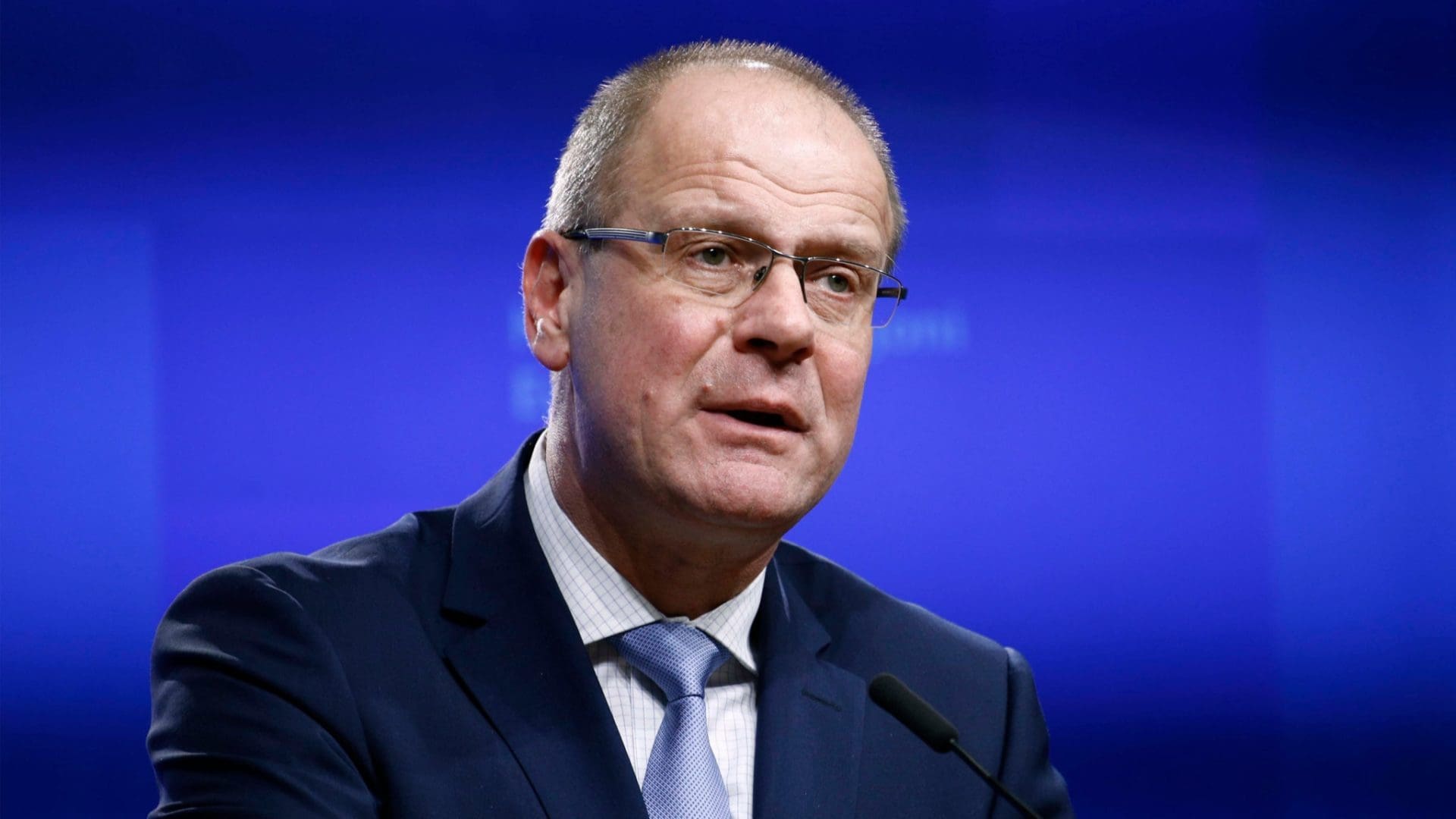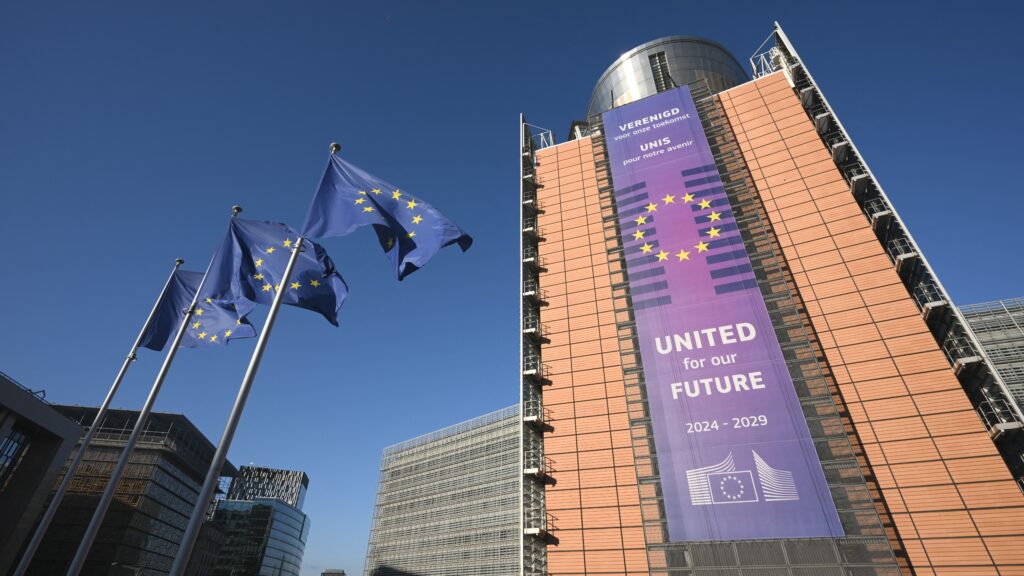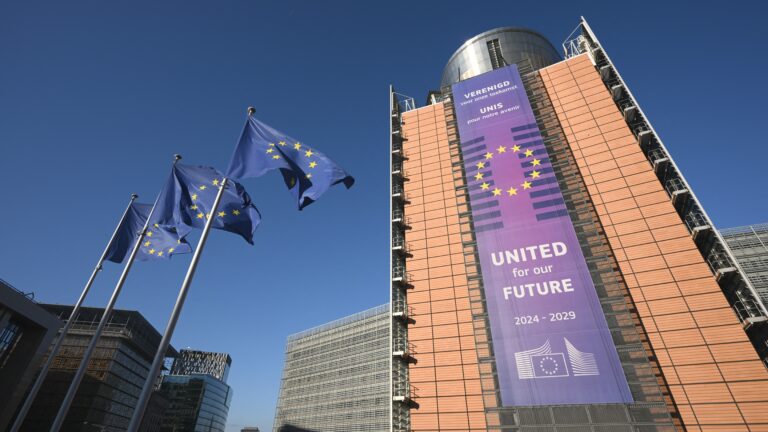Tibor Navracsics was appointed Minister Without Portfolio for Land Development and the Use of EU Funds by Viktor Orbán in May. Earlier (between 2014-2019) he served in Brussels as the European Commissioner for Education, Culture, Youth and Sport, while before that, he also filled the position of Minister of Justice and Deputy Prime Minister in the second Orbán government. In a recent presentation at the Mathias Corvinus Collegium, he addressed the main challenges of his mission, and spoke about the question of EU funds and the recovery and resilience plan for Hungary.
The minister recalled that in order to help the EU recover from the economic shock induced by the pandemic, the European Commission has done something unique – it has borrowed money, thereby creating the first joint EU debt. All EU countries, including Hungary, are guarantors for the loan. In total, the EU’s coronavirus recovery fund is €800bn, from which Hungary was allocated €15bn. While a final agreement about the transfer and use of the funds has not been reached yet between Brussels and Budapest, it is likely that Hungary’s recovery package will include a €10bn loan, too, which could only be used to decrease Hungary’s dependence on Russian energy, by decarbonising the economy.
The EU’s concerns about Hungary’s public procurement system are exaggerated
Although the positions of Brussel and Budapest position have moved closer to each other over the last couple of weeks, the parties have still all their disagreements. Among the Commission’s objections are concerns about the rule of law and corruption in Hungary, Mr. Navracsics reminded, commenting that the way the Hungarian government sees it, the EU’s concerns about Hungary’s public procurement system are exaggerated. He cited a study by the European Commission on the transparency and competitiveness of public procurement in all EU countries, which found that the Hungarian public procurement process’ effectiveness is ‘medium’. Public procurement is highly transparent in countries such as France and the Nordic countries, it is moderately transparent in Hungary, Germany and Ireland, while in terms of the effectiveness of public procurement Spain, Italy, Romania, and even Austria performs much worse than Hungary – according to EU Commission sources. Mr. Navracsics, while not denying the existence of shortcomings in the Hungarian system, that the Commission’s own studies do not justify the profound concerns about corruption and the rule of law in Hungary that the EC tends to cite during the negotiations.
Mr. Navracsics expressed his worry about the EU’s unwillingness to work towards an agreement with Hungary and the lack of clear requirements and expectations from Budapest. He explained that while Poland (against whom similar concerns were raised but which has managed to reach an agreement with Brussels) received much clearer guidelines on what reforms to implement to receive the funds, Hungary, was not provided with detailed requirements. Despite the lack of clear guidance, Budapest did offer a proposal to address the Commission’s rule of law concerns (for instance, proposed to reduce the share of single-bidder tenders). He concluded that the ball is now in the EU’s court to make the deal happen, as Hungary is ready for the agreement.
The major concern about the delay in agreeing on the terms of the deal is that Hungary might lose a substantial amount of the funding it would be eligible for. The extent of the funds to be allocated to each member state is partially based on their predicted growth patterns – so since Hungary has been developing faster than it had been predicted in 2020, if the agreement is delayed, it might end up losing some of the funds. Nevertheless, Mr. Navracsics repeatedly stated how optimistic he is about the situation. He is confident that by autumn Hungary and Brussels will be able to reach an agreement, he said. If that is indeed the case, Hungary will not lose EU funds.
As Tibor Navracsics is responsible not only for the use of EU funds, but for regional development as well, he dedicated part of his speech to this latter issue. He highlighted the unequal development of Hungarian regions (we have written about this topic here), and emphasized that due to regional inequalities, in Hungary regional development means two separate things: convergence and increasing competitiveness. For instance, in Northern Hungary, he said, which is an underdeveloped region, funds will be used to converge counties towards the EU average. Budapest and some of the Western parts of Hungary, on the other hand, are more developed than the EU average. In these counties and cities, the emphasis is on increasing competitiveness.
Hungary regional development means two separate things: convergence and increasing competitiveness
Mr. Navracsics highlighted that in Hungarian political culture, tradtitionally little emphasis is placed on regional development. The primacy of Budapest (which is approximately ten times the size of the second largest Hungarian city) has been taken for granted for long, and little done to develop other regions. He stated that he wished to change this attitude, and vowed that he would devote more attention to left-behind regions. As a final thought he shared with the audience his main vision for the next couple of years – to make Hungary one of the five most liveable European Union countries by 2027.







